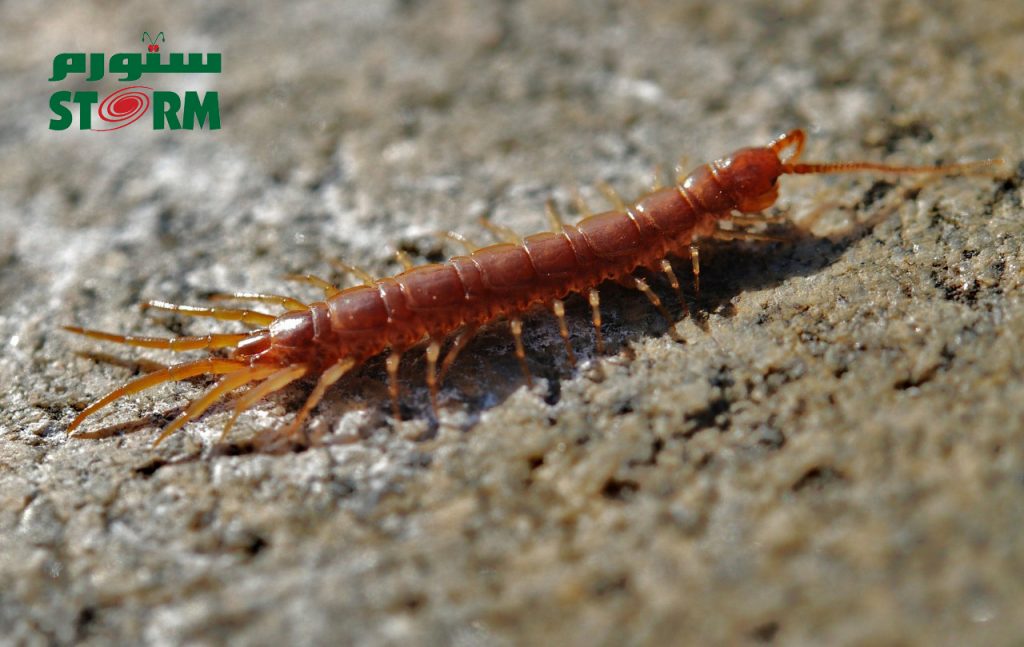Insect & Pest Control, Insect & Pest Control
What is the centipede, is it dangerous to humans, and how can it be combated?
Centipede insects belonging to arthropods slender with a pair of legs for each piece of the body, a pair of poisonous fangs, a pair of antennae and compound eyes. This insect moves quickly when spotted, looking for a safe place, climbing walls and under furniture, legs curving and moving quickly. Having this large number of pairs of legs makes it so fast that its speed is 1.3 feet per second, which means it can steer clear of predators and easily catch up to its intended meal. In addition to speed, these front and rear overhangs mean the front end is difficult to locate; this is a deterrent to predators, as they use these legs to hit and jump on prey.

Why are house centipedes in my house?
Centipede exist in tropical and humid climates. It has also been shown to be adaptable and able to survive in almost any climate. You can find them in your home because it is a warm place where you will likely get a lot of food.
Its eyes are very sensitive to light, so it burrows during the day. For homeowners, the centipede may be found in the basement, bathrooms, swimming pools, and other areas that are exposed to wet and may infiltrate the house through cracks in damp places near the home’s water network, so make sure to block any cracks.
What the centipedes eat?
Centipede eats small insects, spiders, moths, and other arthropods. Centipedes use its speed as the best hunting tool. Upon sensing the prey, it will quickly move to attack. Once they have picked up their meal, most species will use a toxin to inhibit their prey before eating them.

Are centipedes dangerous to humans?
Although the shape of this insect is frightening and a cause for concern, especially when you suddenly see it moving quickly somewhere in the house. However, it is not considered dangerous to humans. It uses its venom to kill its prey and often cannot penetrate human skin.
If a person is bitten by this insect, it is likely that this will cause a red spot to appear on the skin and this is not a cause for concern. But people who are particularly sensitive to insect stings may need to see a doctor to ensure that they do not experience an allergic reaction to the centipede bite.
You can get rid of this insect by:
- Use of boric acid
- Dehumidifier
- Insecticide
Or if you do not want to deal with this insect and its shape scares you or are concerned about other pests in your home, contact us for an inspection and evaluation of your property. Storm has a dedicated team ready at any time to combat insects and general pests.

 العربية
العربية
